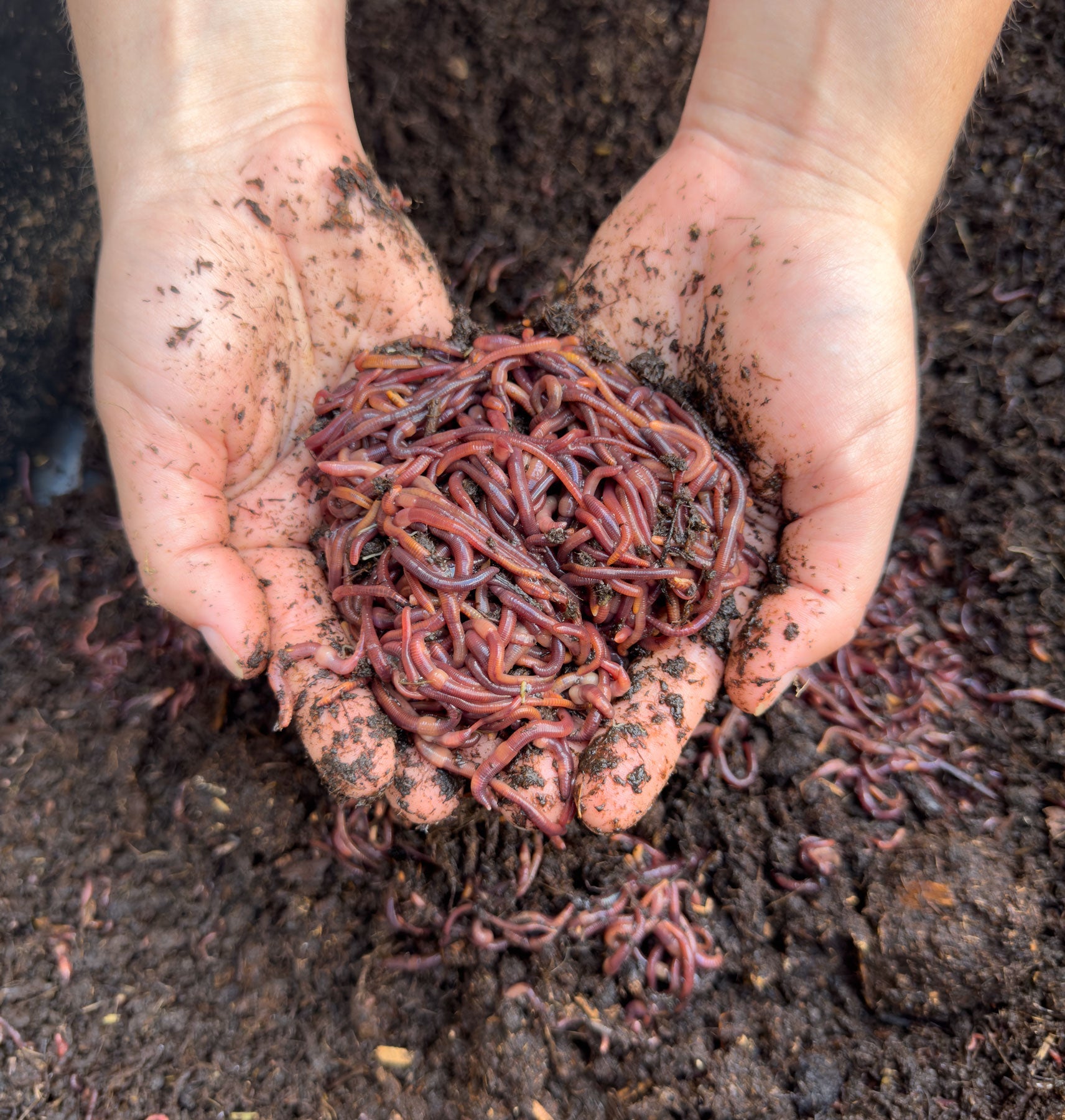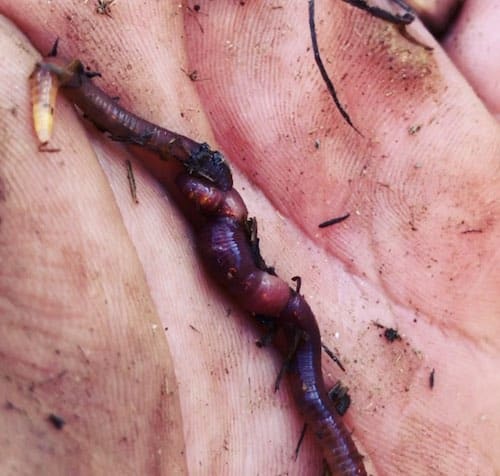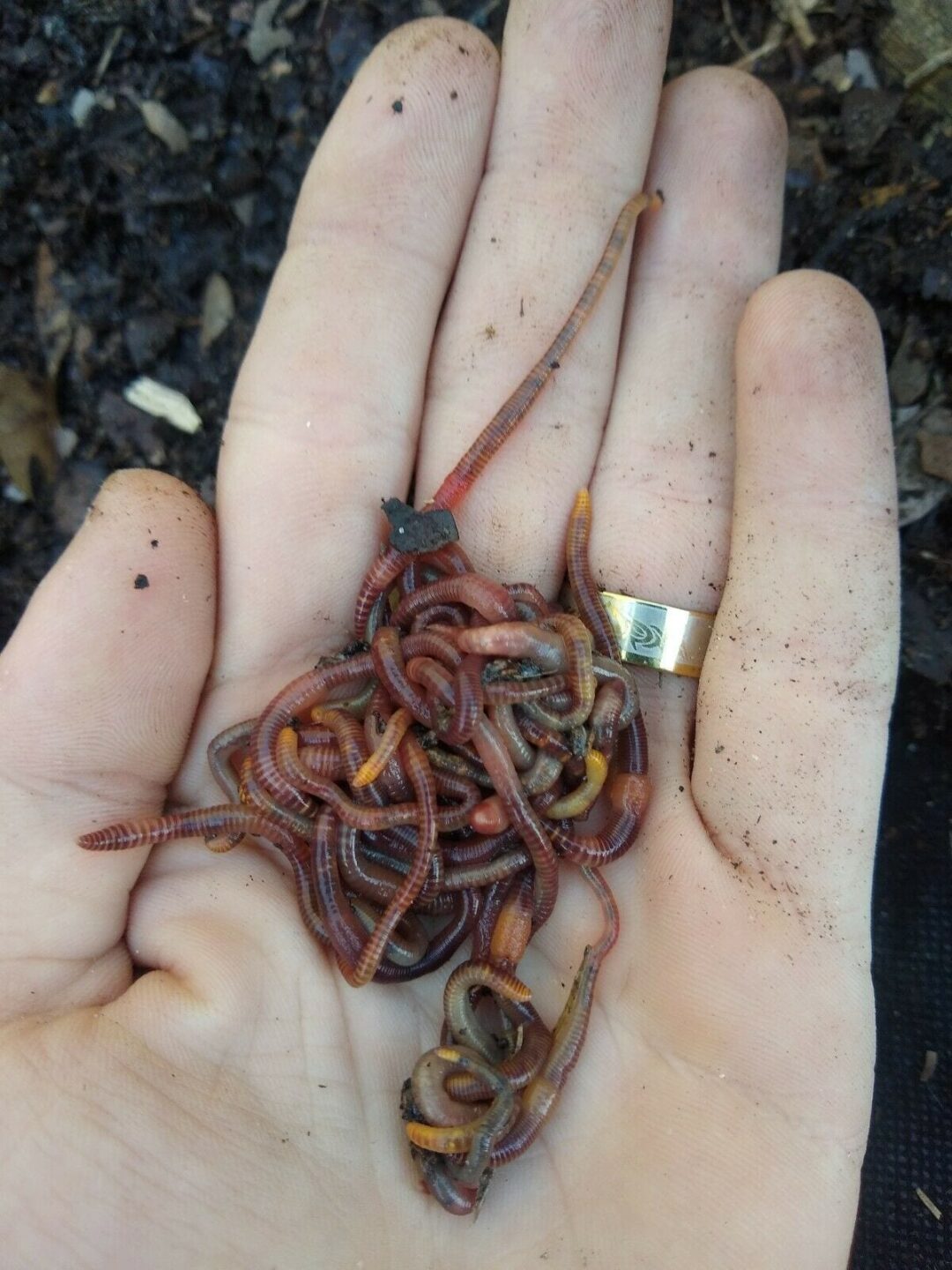Enhance Your Lawn Care Routine with Premium Lake Hickory Bait Products
Enhance Your Lawn Care Routine with Premium Lake Hickory Bait Products
Blog Article
Red Wigglers: The Unsung Heroes of Organic Waste Recycling
Red wigglers, or Eisenia fetida, act as crucial representatives in the organic waste reusing procedure, transforming thrown out products into useful vermicompost. Their efficient failure of organic issue not just enhances dirt top quality yet likewise contributes to sustainable waste management methods. As the world progressively looks for remedies to combat waste accumulation and enhance farming efficiency, understanding the role of these worms ends up being necessary. What systems enable them to flourish in garden compost environments, and how can they be successfully used in both residential and commercial setups? Checking out these questions reveals the broader effects of vermicomposting in our environmental landscape.
What Are Red Wigglers?
The amazing durability of red wigglers, scientifically called Eisenia fetida, emphasizes their crucial role in natural waste recycling. These tiny, reddish-brown earthworms are generally discovered in disintegrating raw material, such as garden compost stacks and manure lots. Lake Hickory Bait. Unlike other earthworm species, red wigglers prosper in nutrient-rich atmospheres and are highly reliable at damaging down organic products, making them essential for vermicomposting

(Red Wiggler Express)In addition to their duty in waste decrease, red wigglers contribute to soil health and wellness by boosting soil structure and aeration with their delving tasks (Lake Hickory Bait). Their presence in composting systems not only improves decay prices yet also promotes a sustainable technique to lose monitoring, illustrating their value in environmental preservation initiatives
Advantages of Composting With Worms
Composting with worms, especially red wigglers, provides numerous advantages that improve both waste monitoring and soil health. First, these worms efficiently break down natural waste, converting it into nutrient-rich vermicompost that enriches soil. This procedure increases disintegration, permitting for a much faster recycling of cooking area scraps and various other organic materials compared to traditional composting methods.
In addition, the vermicompost generated by red wigglers is bristling with valuable microbes, which aid enhance soil structure, oygenation, and wetness retention. This improves the overall health of plants, advertising energetic growth and increased returns in gardens and agricultural setups. The usage of worms in composting lessens the production of greenhouse gases, such as methane, adding to an extra sustainable waste monitoring system.

Just How to Start Vermicomposting
Establishing a vermicomposting system is a simple procedure that can generate substantial advantages for both waste management and soil enrichment. To begin, select a suitable container, such as a plastic bin or wooden box, with appropriate air flow openings to make certain correct air movement. The measurements should ideally be around 2 feet by 3 feet, allowing ample space for the worms to thrive.
Next, prepare bedding material, which can consist of shredded paper, cardboard, or coconut coir. This bed linens should be dampened to develop an ideal environment for the worms. When the bed linen is in location, introduce red wigglers (Eisenia fetida) into the container, typically around one extra pound of worms for every square foot of area.
Following the positioning of worms, add organic waste, such as fruit and veggie scraps, coffee grounds, and smashed eggshells. With these actions, you will efficiently initiate a vermicomposting system that adds to sustainable waste monitoring and enhances your soil.
Preserving a Healthy And Balanced Worm Bin
(Red Wiggler Express)Maintaining a worm bin thriving needs regular interest and like make certain the health and wellness of the red wigglers and the efficiency of the composting process. Correct maintenance starts with keeping track of the dampness levels; the container should perspire but not soaked. An excellent guideline is to keep a consistency similar to a wrung-out sponge.
Carefully mixing the bed linens and food scraps every couple of weeks avoids compaction and makes sure that all worms have accessibility to oxygen. Additionally, it is essential to feed the worms properly.
If the container comes to be as well hot or cold, the worms may become worried. By faithfully taking care of these aspects, one can keep a durable and efficient worm bin.
Impact on Lasting Living
The effective maintenance of a worm bin not just profits the health and wellness of red wigglers but also adds significantly to sustainable living practices. By reusing natural waste, such as kitchen area scraps and backyard particles, red wigglers aid divert considerable quantities of product from garbage dumps. This reduction in waste not just lowers greenhouse gas discharges but additionally lessens the environmental worry connected with waste administration.
In addition, the castings generated by red wigglers work as a nutrient-rich organic plant food, enhancing dirt health and wellness and advertising plant growth. This all-natural option to chemical plant foods supports lasting agriculture and gardening methods, decreasing dependence on synthetic inputs that can damage environments. In addition, worm composting promotes awareness of waste administration, encouraging individuals and areas to embrace even more sustainable behaviors.

Final Thought
In summary, red wigglers offer as important factors to organic waste recycling via their effective decay of natural materials. By incorporating vermicomposting into waste administration strategies, people and areas can dramatically reduce waste while advertising ecological sustainability.
Report this page